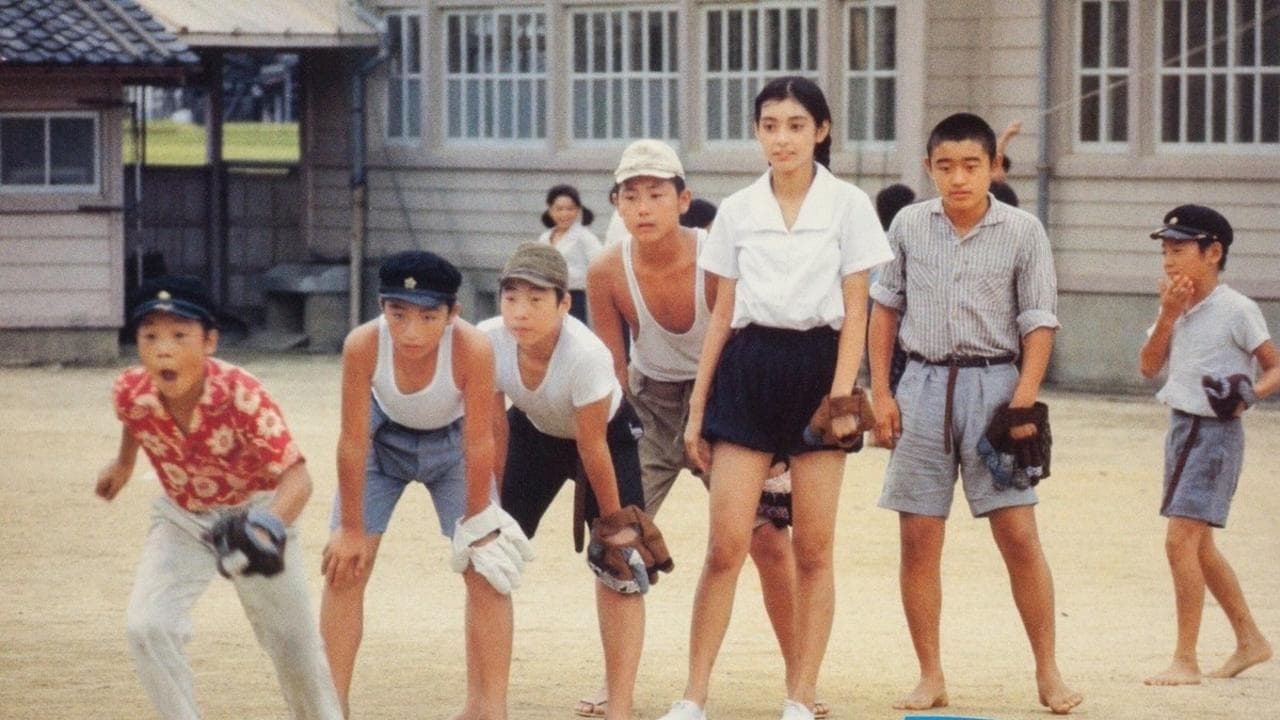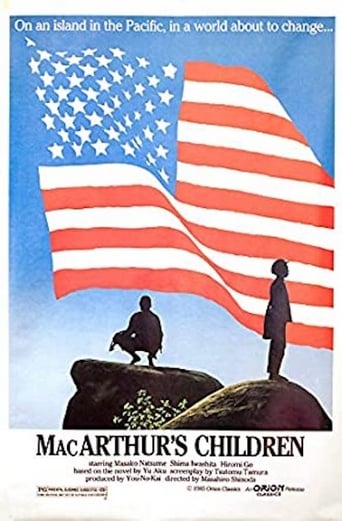



What a beautiful movie!
just watch it!
Clever and entertaining enough to recommend even to members of the 1%
View MoreI enjoyed watching this film and would recommend other to give it a try , (as I am) but this movie, although enjoyable to watch due to the better than average acting fails to add anything new to its storyline that is all too familiar to these types of movies.
View MoreThe English title is an inaccurate and misleading translation, as it really has little to do with MacArthur or his children. However, it does focus on the impact of the Japanese loss of WWII through the eyes of children, and it's in those childhood responses, relationships, and dynamics that the film becomes charming. Counterpointing the world of children struggling to cope in guileless ways are adults dealing with the shift and disruption to their own lives and futures, and in Kurosawa-esquire fashion (though more subtly), the ethical adult struggles of right and wrong, of giri and ninjo. We also get to see actor Juzo Itami before his directing debut as well as the film debut of Ken Watanabe. Cinematography is by Kazuo Miyagawa who was behind the lens for Rashomon, Yojimbo, and Ozu's Ukigusa Monogatari. It's a gentle, restrained view into the tumultuous transitions in Japan set in motion after the war defeat, full of humanity and compassion.
View MoreUnthinkable news come to the people of a small Japanese island: their empire lost the war, and American invaders are on the way. We enter the lives of a cross-section of townsfolk forming a socially and economically diverse caste of characters. Despite language and other cultural differences, we sense how we too might react in their position - a position of fear, as they await the landing of the Western warlords. Common adversity causes disparate groups to connive, and in some cases plot violence: farmers, lovers, school children, barbers, would-be Yakuza swindlers, war-handicapped soldiers - but from the moment the Yanks step ashore, neither side, whether American or Japanese, is able to dehumanize or villanize the other. Both want nothing more than peace, fellowship, cooperation.This film doesn't gloss over war's brutality. We see, for instance, a flip-side to war crimes tribunals in a young boy whose father is to be executed. But in the midst of that tension and uncertainty, a release emerges in the form of baseball. Just at a time when all the islands' flowers burst into bloom, and fishing boats again set forth with full crews, and farmers plant without regard to military needs, a bond of friendship blooms between the feared invaders and their delightfully human island hosts.This is a bittersweet film, but one so permeated with optimism and likeable characters that it can withstand many viewings.Personally, if I compare this film to, for instance, Jose Luis Cuerda's "La Lengua de las Mariposas" (Butterfly), a technically superb work, I cannot but feel its historically and psychologically accurate but deeply pessimistic ending severely marrs what might have been an aesthetic gem. Art should "uplift" and "entertain" - and film-makers have many approaches at their disposition to do just that. Ultimately I am neither "uplifted" nor "entertained" by condemnations of human nature. MacArthur's Children employs the right approach, and indeed might even teach the better lesson.
View More